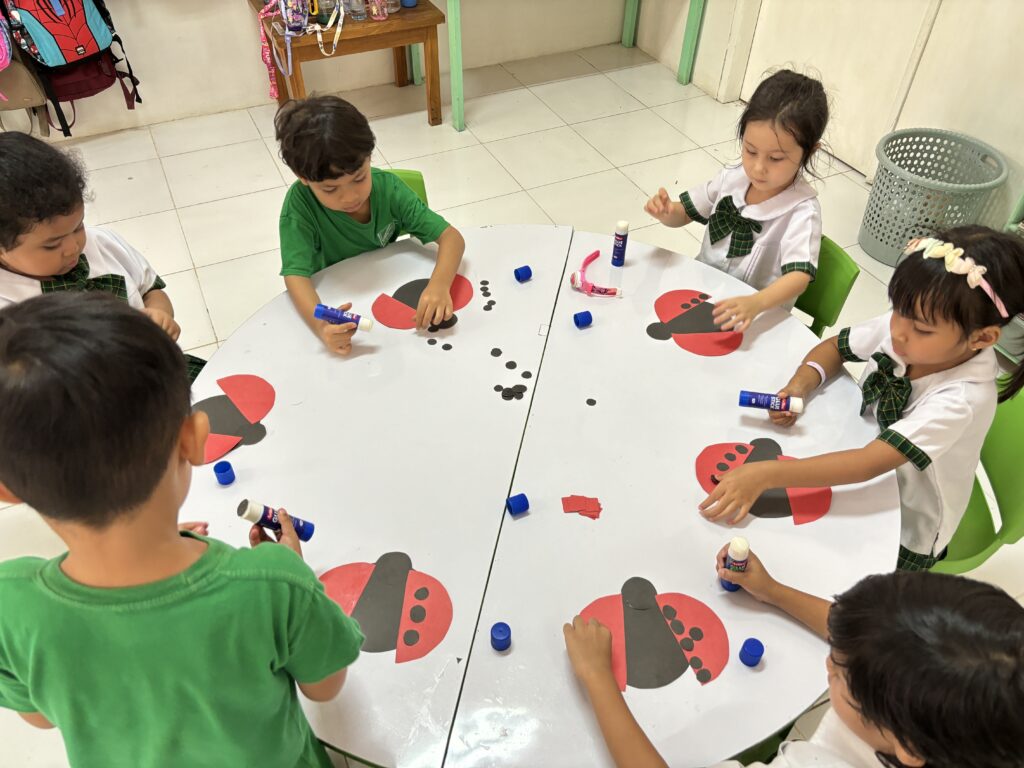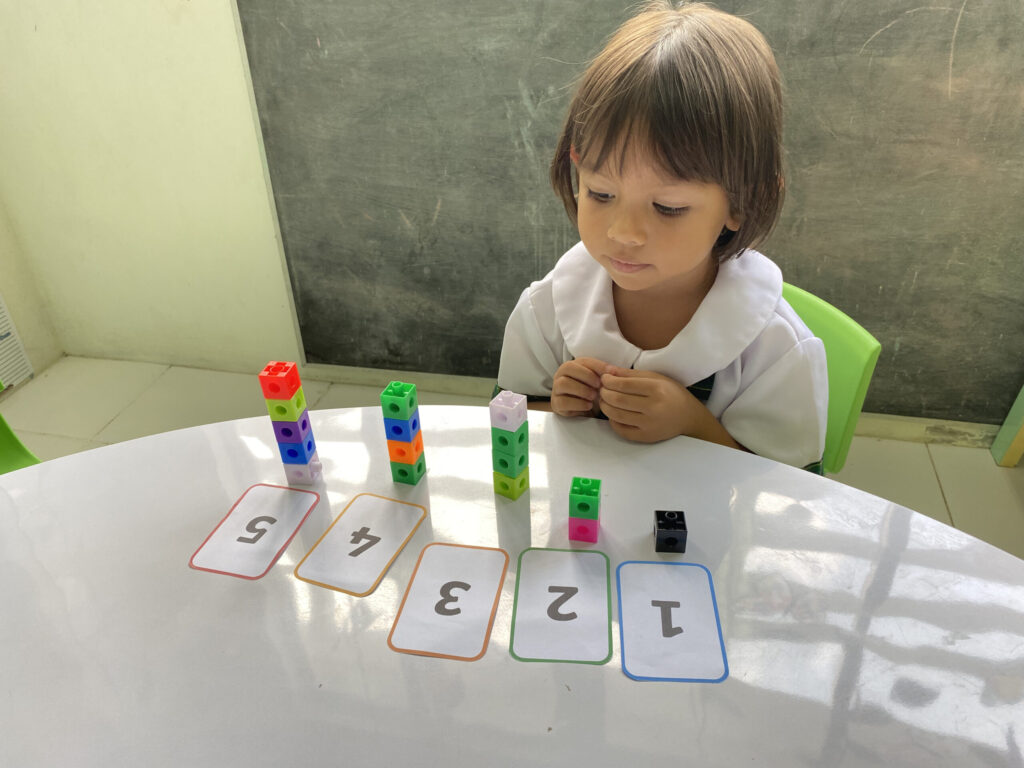Early Years Curriculum (Ages 3–5)
Our Early Years program offers a joyful and purposeful start to learning. We understand that these formative years are when children develop not only their first academic foundations, but also their sense of self, social understanding, and confidence.
At Sekolah Nusa Alam, the Cambridge Early Years Curriculum is brought to life through play-based learning, sensory exploration, and a nurturing, bilingual environment. Every child is supported as a capable, curious learner.


Highlights of the Programme
- A safe, stimulating environment designed specifically for young children
- Daily routines that promote independence and predictability
- Guided discovery and structured literacy and numeracy
- Creative arts, music, movement, and storytelling
- Outdoor play and exploration that connects children to nature
Readiness for Primary – Our graduates leave the Early Years program confident and prepared, not only academically but emotionally and socially, to thrive in a bilingual primary setting.
